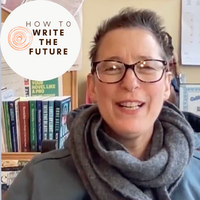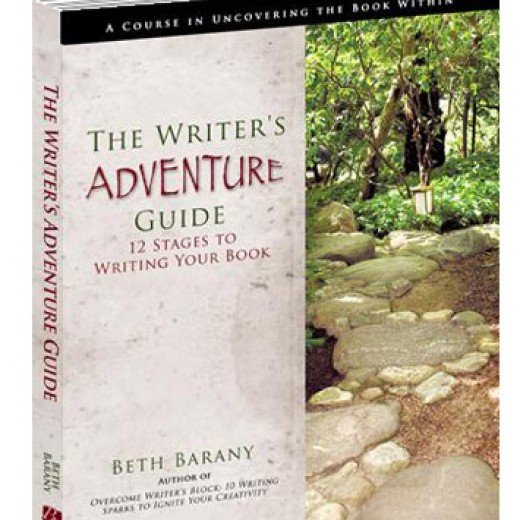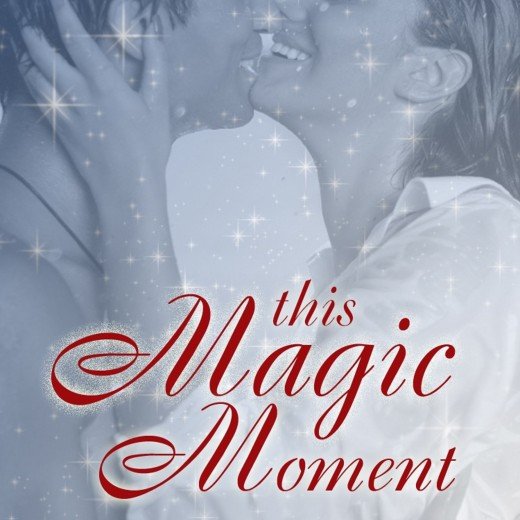Represent Native Peoples Accurately in Your Fiction with Sarah Elisabeth Sawyer, Part 1
In “Represent Native Peoples Accurately in Your Fiction with Sarah Elisabeth Sawyer, Part 1” host Beth Barany, creativity coach, and science fiction and fantasy novelist chats with author, writing instructor, and tribal member Sarah Elisabeth Sawyer where they discuss how to accurately and respectfully represent Native Peoples and their history in your stories and share about Sarah’s writing course “Fiction Writing American Indians.”
Platforms the podcast is available on Apple Podcasts | Google Podcasts | Buzzsprout | Spotify | Podcast Addict | Amazon Music | Youtube
RESOURCES
Free World Building Workbook for Fiction Writers: https://writersfunzone.com/blog/world-building-resources/
Sign up for the 30-minute Story Success Clinic here: https://writersfunzone.com/blog/story-success-clinic/
Get support for your fiction writing from a novelist and writing teacher and coach. Schedule an exploratory call here and see if Beth can support you today: https://writersfunzone.com/blog/discovery-call/
ABOUT SARAH ELISABETH SAWYER
Fiction authors who want to write about Native Americans face a challenging minefield riddled with dos and don’ts, and no clear answers. That is why author and writing instructor Sarah Elisabeth Sawyer created the “Fiction Writing: American Indians” digital course.
As a tribal member of the Choctaw Nation of Oklahoma, she has written and published 15 historical fiction books with Native main characters, and over 275 non-fiction articles on Native artists and organizations with representatives from dozens of North American tribes. The Smithsonian’s National Museum of the American Indian honored her as a literary artist through their Artist Leadership Program for her work in preserving Choctaw Trail of Tears stories, and she is a First Peoples Fund Artist in Business Leadership alumni.
Through her in-depth course, authors are equipped to write authentic stories that honor First American history and culture. Discover more at www.fictioncourses.com/americanindians
Facebook: https://www.facebook.com/fictioncourses,
Instagram: https://www.instagram.com/fictioncourses/
Podcast: The Confident Fiction Author
ABOUT THE HOW TO WRITE THE FUTURE PODCAST
The How To Write The Future podcast is for science fiction and fantasy writers who want to write positive futures and successfully bring those stories out into the marketplace. Hosted by Beth Barany, science fiction novelist and creativity coach for writers.
Tips for fiction writers! This podcast is for you if you have questions like:
- How do I create a believable world for my science fiction story?
- How do I figure out what’s not working if my story feels flat?
- How do I make my story more interesting and alive?
This podcast is for readers too if you’re at all curious about the future of humanity.
Transcript for Represent Native Peoples Accurately in Your Fiction with Sarah Elisabeth Sawyer, Part 1
Are you looking for a way to dig into your world building for your story?
Then I recommend that you check out my World Building Workbook for Fiction Writers. Now available.
It’s at How To Write The Future.com.
Just head on over there. Click, sign up. Put your name and email, and there you go.
That workbook will be delivered to your inbox straightaway.
***
Hey everyone. Welcome back to How to Write the Future podcast.
The focus of this podcast and the focus of my work is to support writers to create positive optimistic stories because when we vision what is possible we help make it so. And part of that visioning is learning the tools of today that help us become better writers for tomorrow.
WELCOME TO SARAH ELISABETH SAWYER
I’m your host Beth Barany, a science fiction and fantasy author, also a fiction writing teacher. I’m so excited today to bring in an expert, on writing about native peoples. And in a moment I’m gonna introduce her, Sarah Elisabeth Sawyer.
And I just wanna also acknowledge that I live here in California, in Oakland, California. This is the home of the Ohlone people of the Alameda Band. And I grew up in Sonoma, which is the home of the Miwok people. And I wanna bring that up because as much as I acknowledge that in my weekly newsletters, I don’t often talk about that.
And because of our guest, I want to bring that up and really honor the land here and the people that have been living on this land for eons and eons.
So with that, I’m bringing Sarah here with us today to talk about how to respectfully bring in native peoples into our work and why we might want it.
And a big focus of my work as a writer and a writing teacher is world building. And so this is part of my ongoing series, discussing how do we make our worlds authentic, genuine, and respectful. So thank you so much, Sarah, for coming here today. I would love for you to introduce yourself to our audience.
SARAH ELISABETH SAWYER
Halito Beth and everyone, sv hohchifo yvt, Sarah Elisabeth Sawyer Chahta sia hoke.
Hi, my name is Sarah Elisabeth Sawyer and I am Choctaw. I’m a tribal member of the Choctaw Nation of Oklahoma and Yakoke, thank you, Beth, for having me on the podcast. I know this is gonna be a lot of fun.
BETH BARANY
Oh, I’m so glad that you’re here and you are also a writing teacher and teach on this topic, and I know you have been teaching online and in person.
And I thought I would start today with this wonderful question — and so thank you for the questions that you provided, and I will also have some for you.
And I love your first question here, which is: what is the appeal to science fiction and fantasy authors to base characters or their fictional worlds on native history and culture?
SARAH ELISABETH SAWYER
The reason why I put that question out to you is whenever I created my course Fiction Writing American Indians, I knew there were a lot of authors out there, native and non-native, who were looking for information, who wanted to know how to accurately and respectfully write about native people, and they didn’t have a lot of resources.
So I taught some in-person workshops, and then I created the digital course. And what amazed me as I got it out there, started putting the word out there, is how many fantasy and sci-fi authors were attracted to the course. That was easily half of the people who were contacting me and telling me about their story, about their story worlds that they were creating, and how they wanted to include indigenous people in a way that was still accurate, even though it’s a completely fantasy world, right?
It’s fantasy people groups or sci-fi, and so it’s these completely different worlds, but they were basing ’em on indigenous cultures. And so even though they’re completely fictional, they still didn’t want the stereotypes. They still didn’t want to be cheesy and be stereotyping Indigenous people.
They wanted to have this real, authentic feel to their fantasy worlds.
And so I’ve had so many fantasy and sci-fi authors contact me about that. And I think it’s a challenge for any author writing about another culture, especially if it’s not their own.
But with the fantasy, you have a little more room to grow it and to combine cultures and that sort of thing, versus if you’re writing real world or historical fiction.
So it’s a real advantage for fantasy authors to lend an authenticity to their stories where they’re creating these fantastical worlds, but they’re still rooted in a lot of indigenous cultures and indigenous beliefs that they can draw from to create unique characters.
And I love that they’re taking my course because it’s helping them not to create just cardboard characters and stereotypical characters and characters that they really want them to live and breathe and create story worlds.
And we can get into a little bit more about some cautions and stuff when you’re doing that and when you’re dealing with other cultures and all.
But I think for fantasy and sci-fi, it’s just a great way to explore a lot of themes that are even more difficult to do in other genres like historical fiction or contemporary.
BETH BARANY
Yeah. Let’s dig into that.
I love that the segues us perfectly into, and it’s even something that I’ve dealt with, which is what are authors most concerned about when they’re basing their story worlds or characters on either real native people or just real native cultures? Like a lot of us in science fiction and fantasy.
SARAH ELISABETH SAWYER
Mm-hmm. So we have the stereotypes. That’s what we talk a lot about because writers of old from first contact just about have written their own versions of who native people are, what they’re like.
They had an outside perspective on native people, so they were only seeing really a one dimensional aspect of native people.
And so unless they were in the community and involved in it, intermarried in it, that kind of thing, they were really just seeing a one dimensional aspect of native people, and that translated into their writing. Which is what so many of the stereotypes that I talk about are based on because they went around the world.
People have always been fascinated by the indigenous cultures of North America, and they wanted to learn about ’em. Even today in places like Germany, they have powwows and they do native regalia and all of these things because they’re just really fascinated by it. But because of that, because of the stereotypes that have gone around, authors can find their self putting those in without even realizing it.
They may not even realize it’s a stereotype or that it’s something that native people wouldn’t appreciate or find offensive.
And you don’t even think to ask those questions because it’s so ingrained not only in American culture but in the global narrative.
And so that’s what I really encourage authors to do deeper research so that they’re getting to know the real people behind this one dimensional wall that we often have when we’re doing native characters.
BETH BARANY
Can you give us an example? I mean, not to perpetuate any of those stereotypes, but maybe some of your own pet peeves that you see in contemporary fiction, and maybe cropping up in either historical fiction, contemporary, or science fiction and fantasy?
And just keep in mind that, I work primarily with genre fiction authors who might be across any of those genres.
And, some of those things that might crop up without realizing.
SARAH ELISABETH SAWYER
Mm-hmm. One of the things with historical fiction, so I’ll just go ahead and cover a pet peeve with that because I write historical fiction. I’ve written and published 15 historical fiction books and historical Westerns. So I love historical fiction. I love that I’m able to have native main characters in there.
And with that, one of the things I see and I’ve not heard a lot of people talk about– I would read books, historical fiction especially, or see movies. And I’m like, there’s just something different about when, say a non-native author versus a native author writes these stories. But I couldn’t put my finger on it.
And I finally defined it as what I call the “historical-only view.” And that’s this sense that native people are in the past.
There was around the turn of the century, the mantra that went around of, it’s the vanishing race and there was actually a lot of effort put in toward capturing native history and culture through photography and ethnology, and the music.
And so there was a lot of white people who were going into native communities and preserving cultures. Thankfully they did because a lot of native people that’s all they have of their history because so much was lost. But there was this real push to capture it because they were known as the vanishing race.
That’s what I see in the fiction is there’s not a future for them.
We even see that some in sci-fi and fantasy, and I think more so in fantasy, if you’re basing it on this ancient culture that it’s this people group, but they’re eventually gonna get swallowed up and disappear.
So you can have that feel. It’s not directly stated, but it’s just underlying through the themes of the story when it’s relating to the native character.
The other one that I have, and again, I see this in historical fiction, fantasy, all the genres contemporary, and that’s what I call The Wise Guide stereotype.
That’s where we see the native person in that role of the mentor or the wise guide of the main character, and that’s all they are in the story. They’re just this person that has this ancient, almost supernatural wisdom.
I’ve seen it done well, especially when it’s an elder. Or a parent. I’m not saying that you shouldn’t do that, but just be aware that it’s been done and it’s been overdone in a sense.
And if you do have that character, make them a unique part of the story and find a fresh way, to bring a freshness to that character.
Because that is something that I see often in the mentor role. If you’re gonna have a native character, that’s where you put them.
So those are a couple of, I wouldn’t call ’em pet peeves, but it’s something that I try to encourage authors and just educate them on because again, it’s things that we’re not aware of. It’s just so deeply ingrained in our culture and society.
BETH BARANY
Yeah, I actually have a native character in my sci-fi mystery series, and she’s the coroner in the crime-fighting team. She does her job and she carries herself with pride. Because it’s science fiction, I call her a First Nations person, or she calls herself that, which I know is very prevalent in Canada.
I felt like it was my job also to just maintain that. I like how the Canadians use that and find it an honoring way of speaking of the native peoples. I thought about, well, how do I make her unique? She’s part of the story. She lends her personality to the crime-solving team, and she’s herself and she is one of many characters who represent their heritage through their dress.
A lot of my characters are representing their heritage through their dress because it’s a multinational environment, this hotel casino space station. I had fun dressing people up, and people dress up when they go to casinos. So it was fun to play with being like United Nations, just in terms of all the different cultures.
SARAH ELISABETH SAWYER
That’s so fun. I love that. And I love that they dress, they wear their regalia or their traditional dress whenever they’re doing their work. And I love that she has such a vital role in the story, how, I wanna say how fun. That sounds morbid, but she’s the coroner. But it’s still, it sounds like a fun setting and a fun role for the character. A lot to explore there.
BETH BARANY
Absolutely. I wanna also presence that in my own heritage, I was brought up with the ideas of the native peoples and my great-grandmother was a poet and wrote a lot about corn and women and really drew from the earth, her poetry, and her stories.
And I didn’t know the specifics of my native heritage but according to my own research, it’s as far back as the 1600s.
There’s controversy in my own family when I’ve done research in ancestry.com. There’s people who dispute it, and then there’s people who say, but the grandson said his grandmother was native. Why would he even say that in an era where it wasn’t accepted?
So it’s so interesting. In my own family, I know cuz I’ve done the research, I have all kinds, including the white supremacists and the native people and both sides of the Civil War and the activists and the passivists and the fighters and those who ran from the wars.
And it’s quite incredible, just to presence that.
SARAH ELISABETH SAWYER
Mm-hmm, mixed heritage.
BETH BARANY
Totally mixed heritage, and a lot of Jewish background as well that had all kinds of different Jewish stories from different parts of Europe. Like a lot of Americans, I’m mixed race and mostly not native.
SARAH ELISABETH SAWYER
This is a little bit off-topic, but people talk about blood quantum a lot. That’s something that the government put on us. One of our great Choctaw chiefs, Pushmataha before, we were removed from our homelands, he wanted to make it very clear in the treaties that it’s for Choctaws and their descendants because he knew intermarriage was already taking place.
And he was like, this is not going to be about a blood quantum issue. If you’re Choctaw, if you marry into the Choctaw tribe and have children, the children are Choctaw. So if you leave, the children stay. And so there was this aspect of descendency that’s really strong among Choctaws. People sometimes ask: What percentage are you?
And I just let ’em know that my great-great-grandfather buried his father on the Trail of Tears and I’m 100% his descendant. And that’s how much Choctaw I am.
I love that so much. If we go back far enough, we’ll find so many different ancestors from so many different places. And we can lean into all of their stories and strengths.
SARAH ELISABETH SAWYER
Mm-hmm. Absolutely.
BETH BARANY
Thanks for listening everyone. That’s it for Part One of my conversation with Sarah Elisabeth Sawyer. Stay tuned for Part Two coming next week. See you then.
***
Thank you so much, everyone, for listening to my podcast. Your interest and feedback is so inspiring to me and helps me know that I’m helping you in some small way.
So write long and prosper.
Are you stuck and overwhelmed by world building?
Then check out my new World Building Workbook for Fiction Writers.
Head over to HowToWriteTheFuture.com and sign up for yours today.
Loved this episode? Leave us a review and rating here: https://www.buzzsprout.com/2012061
ABOUT BETH BARANY
 Beth Barany teaches science fiction and fantasy novelists how to write, edit, and publish their books as a coach, teacher, consultant, and developmental editor. She’s an award-winning fantasy and science fiction novelist and runs the podcast, “How To Write The Future.”
Beth Barany teaches science fiction and fantasy novelists how to write, edit, and publish their books as a coach, teacher, consultant, and developmental editor. She’s an award-winning fantasy and science fiction novelist and runs the podcast, “How To Write The Future.”
Learn more about Beth Barany at these sites:
Author site / Coaching site / School of Fiction / Writer’s Fun Zone blog
CONNECT
Contact Beth: https://writersfunzone.com/blog/podcast/#tve-jump-185b4422580
Email: beth@bethbarany.com
LinkedIn: https://www.linkedin.com/in/bethbarany/
CREDITS
EDITED WITH DESCRIPT: https://www.descript.com?lmref=_w1WCA
MUSIC: Uppbeat.io
DISTRIBUTED BY BUZZSPROUT: https://www.buzzsprout.com/?referrer_id=1994465
SHOW PRODUCTION BY Beth Barany
SHOW NOTES by Kerry-Ann McDade
***
For more “How To Write the Future” episodes, go here.
If you’d like to invite Beth onto your podcast, drop her a note here.





